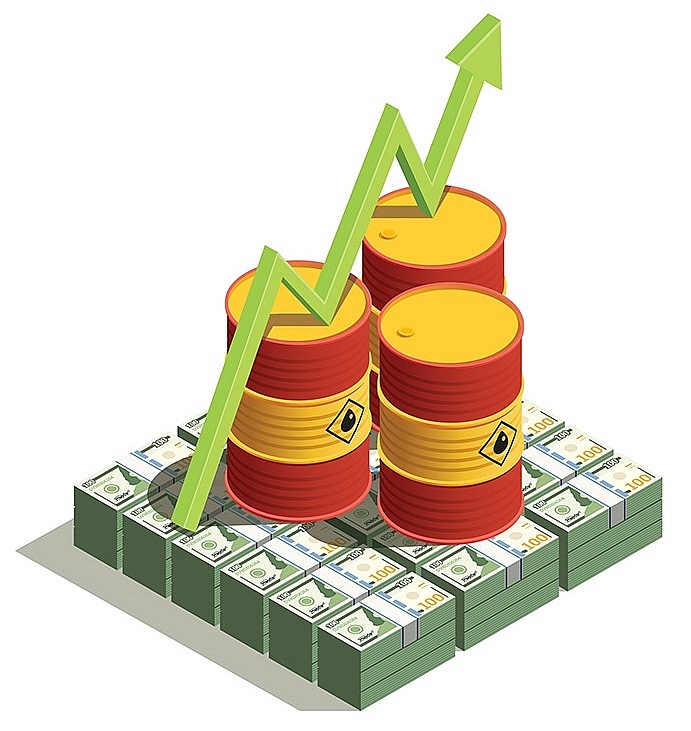Oil industry pins hopes on strong 2021 recovery
 |
| Photo: Freepik.com |
The ongoing health crisis has been hurting the demand for oil in a bigger way than previously anticipated, noted the Organization of the Petroleum Exporting Countries (OPEC). But OPEC expects economic recovery in all major economies as various lockdowns ease. “The latest surge of infections in the United States will need to be closely monitored, as a continuation of this trend may lead to erosion in rebounding consumer confidence and spending behaviour,” the organisation emphasised.
OPEC still sees a record rebound in demand next year if the pandemic is contained “with no major disruptions.”
In April, US oil futures plunged below zero for the first time in history, based on fears that there would be nowhere left to store oil as Americans hunkered down to slow the spread of the contagion. The historic low price also reflected continuous uncertainty about what buyers would even do with a barrel of crude in the near term. Refineries, storage facilities, pipelines, and even ocean tankers have filled up rapidly.
Although jet fuel demand remained relatively thin, witnessing a 45-per-cent decrease from last year, the need for diesel and gasoline-related usage continued to inch up and chip away at US stockpiles, said the US Energy Information Administration.
The oil and gas industry has been in chaos as the outbreak significantly impeded demand for hydrocarbons. Some of the most notable and largest companies have confirmed massive layoffs, along with seeing billions of dollars slashed from capital budgets.
For instance, American multinational energy corporation Chevron plans to cut $4 billion, equivalent to 20 per cent of spending, coupled with 15 per cent of staff layoffs.
Besides that, the world’s leading oilfield services provider Schlumberger is also slashing more than 21,000 jobs as the global virus quashes demand for energy and oil prices are routed.
With a global shift to cleaner energy, fossil fuels will likely be cheaper than expected in the coming decades, while emitting the carbon they contain will get more expensive, cited Bloomberg. These two simple assumptions mean that tapping some fields no longer makes economic sense. For example, London-based gas titan BP announced that it would no longer carry out any exploration in new countries.
The oil industry was already grappling with the energy transition, copious supply, and signs of peak demand as COVID-19 began to spread, and the pandemic will likely bring forward that peak and discourage exploration, according to Rystad Energy AS. The consultants expect about 10 per cent of the world’s recoverable oil resources – some 125 billion barrels – to become obsolete, according to the Wall Street Journal.
On the other hand, OPEC and its allies in OPEC+ confirmed that they would stick to their discipline to maintain their output-cut deal, and with oil demand continuing to recover, the market is undersupplied and oil inventories are starting to drop. They also trimmed their expectations from 9.7 million to 7.7 million barrels per day.
Market watchdogs believe that for broad long-commodity positions, investors can use second-generation commodity indexes, which aim to reduce the cost of rolling futures contracts.
Experts also place their focus on the upcoming recovery in oil, recommending that selling puts Brent crude with strike prices below current levels and with a maturity of six months.
Exness analyst Michael Stark noted, “People are talking about ‘undersupply’ in the context of the first quarter’s historic oversupply of oil, but compared to ‘normal’ circumstances, there’s plenty of oil to go around at prices that remain far below the average for the last 3-4 years. Economic recovery in China is encouraging but COVID-19’s numbers are less so.”
“For most traders,” Stark continued, “the focus remains firmly on the short term. Instability in markets generally and renewed local lockdowns in various countries make it more risky than normal to hold positions for very long.
Long-term traders are noting that the carries for Brent that were customary until around the middle of 2020 have more-or-less disappeared and been replaced by swaps. The bullishness of some participants is on thin ice.”
What the stars mean:
★ Poor ★ ★ Promising ★★★ Good ★★★★ Very good ★★★★★ Exceptional
Related Contents
Latest News
More News
- Banking sector targets double-digit growth (February 23, 2026 | 09:00)
- Private capital funds as cornerstone of IFC plans (February 20, 2026 | 14:38)
- Priorities for building credibility and momentum within Vietnamese IFCs (February 20, 2026 | 14:29)
- How Hong Kong can bridge critical financial centre gaps (February 20, 2026 | 14:22)
- All global experiences useful for Vietnam’s international financial hub (February 20, 2026 | 14:16)
- Raised ties reaffirm strategic trust (February 20, 2026 | 14:06)
- Sustained growth can translate into income gains (February 19, 2026 | 18:55)
- The vision to maintain a stable monetary policy (February 19, 2026 | 08:50)
- Banking sector faces data governance hurdles in AI transition (February 19, 2026 | 08:00)
- AI leading to shift in banking roles (February 18, 2026 | 19:54)

 Tag:
Tag:




















 Mobile Version
Mobile Version